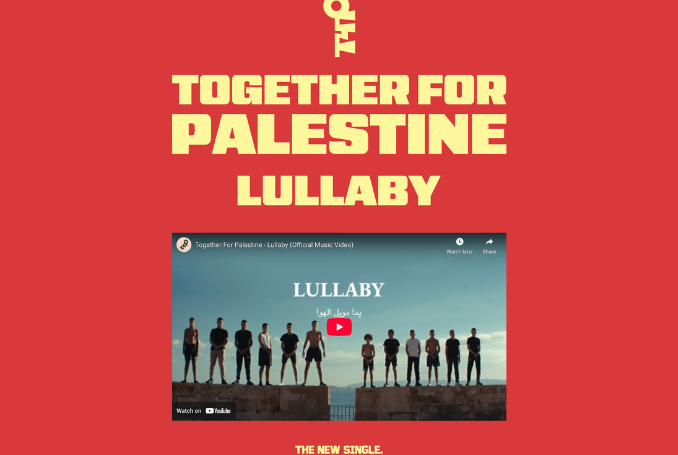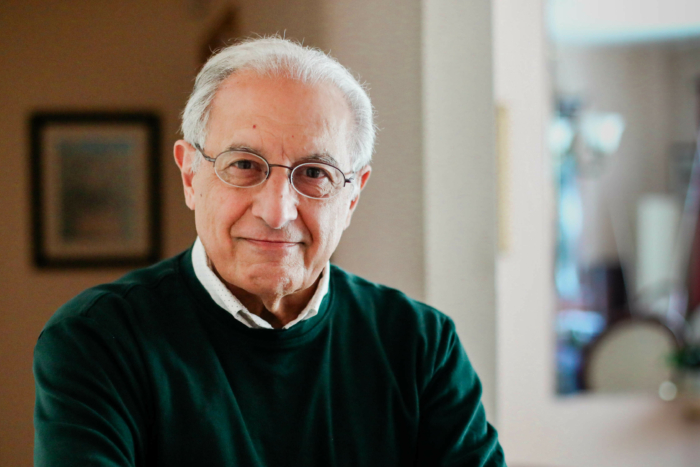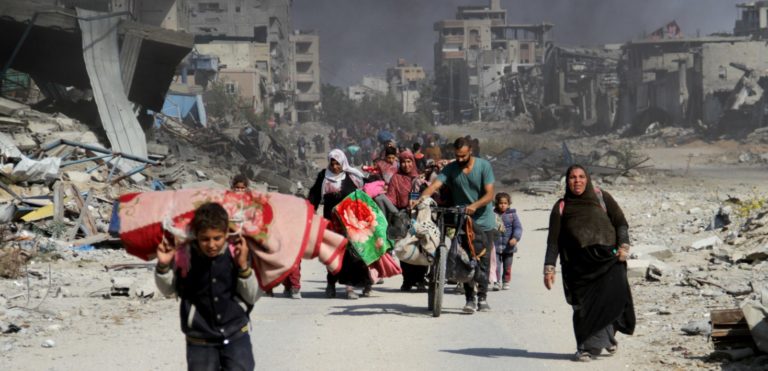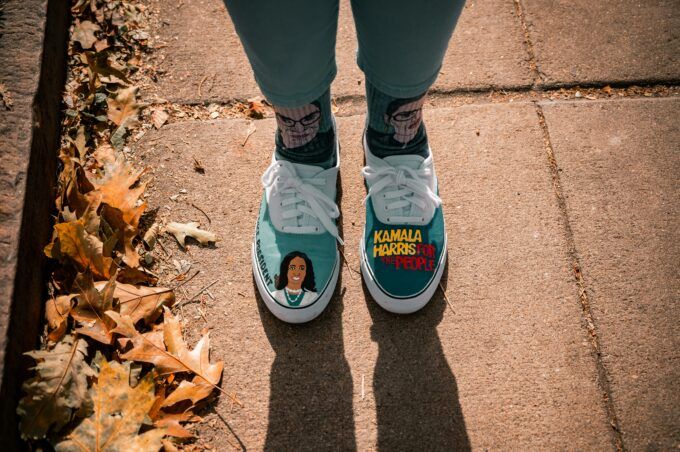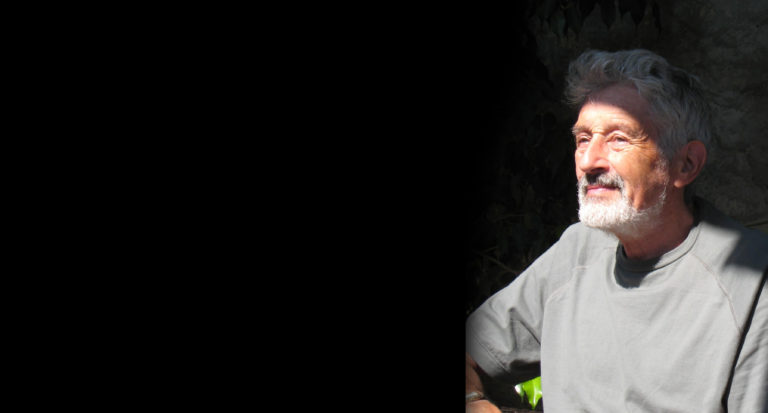by Dave Himmelstein and Cathryn Atkinson June 3, 2010
A tribute to the late Palestinian-Canadian activist, author and teacher.
( originally published in Rabble (https://rabble.ca/)
Rezeq Faraj was the co-founder of the group Palestinian & Jewish Unity, and a president of the Canadian Arab Federation. He died Oct. 24, 2009.
It’s now seven months since Rezeq Faraj left this world. Time enough to mourn, ruminate, and get over any surprise that mainstream media had no space for the passing of this leading Canadian activist for Palestinian human rights, this former president of the Canadian Arab Federation. But while the absence of mainstream attention is predictable, it is also grimly ironic: few had better credentials than Faraj to qualify as a poster boy for the Canadian dream
It’s hard to remain a child in hell, and Faraj would affirm matter-of-factly that his childhood had been non-existent. One midnight at age two, he, his family, and the rest of the village of Rafat were swept up in flight from advancing Zionist militia. He joined the three-quarters of a million Palestinians eventually driven from their homes in the unilateral population transfer that has come to be known as the Nakba (catastrophe).
The family was rendered fatherless during the flight, a year of Faraj’s toddlerhood was spent in a cave, followed by years of the family huddling together under a blanket in the Daheisha refugee camp. Food rationing was strict and, from an early age, Faraj hustled — before school, after school, instead of school — to help his mother put food on the table. The advent of a camp library opened the floodgates to European literature and philosophy. An exit route opened for Faraj at the age of 14 through a United Nations training program in electrical mechanics. Subsequent employment had him zigzagging around the Gulf states and Europe under a brutal work regimen — but he’d survived Daheisha.
Through strategic sleep deprivation, he completed two years towards a university engineering degree in Germany. But after sifting impressions gleaned from international contacts, Faraj decided to cast his fate with Canada, where he arrived virtually penniless in 1966. After an apprenticeship of 16-hour factory days, he began moving up the socio-economic ladder. Then, in storybook fashion, romance flowered on a transcontinental railway — with the chance meeting with a beautiful Québecoise named Claudette Fortier, who would became his partner in life and social activism, and the mother of their three children.
Certain aspects of the dream had to be scaled down. Plans for an engineering degree were shelved and the acquired expertise channeled into the family home he designed in St.-Jean-sur-Richeliu, three-quarters of an hour from Montreal. He taught high school, raised a family, lived the dream. But the unfolding tapestry of fulfillment never served to distract from preoccupation with the conditions of life back at Ground Zero, including family members still living in Daheisha. He stayed in touch with various currents of Palestinian advocacy and resistance, and was personally acquainted with leading figures in both the homeland and diaspora, including Yassir Arafat and Edward Said. In addition to advocacy efforts in Canada, Faraj participated in humanitarian and observer missions to Palestine, and regularly attended international conferences, including the 2003 Environmental conference in Porto Alegre, Brazil.
Faraj left no spectacular doctrinal or tactical legacy to the community of struggle for Palestinian freedom and self-determination. However, in this time of shifting, feinting and renewed uncertainty, his stance on basic issues holds up well and may be useful to review. His cornerstone commitment was to a secular and democratic society, devoid of religious or ethnic underpinning, with clear division of powers among legislative, executive and judicial branches. He supported genuine separation between church/mosque/synagogue/whatever and state. His dissection of a leading exponent of the opposite approach, Hamas, appeared in Covert Action Quarterly in 2001. He explained why it was the only Palestinian group that was officially registered in Israel and was even tacitly aided by Israel in its early stages.
Conscience precluding participation in the same kind of violence that had been inflicted on him. Faraj was personally committed to pacifism as a matter of principle. Nevertheless, while condemning acts of violence directed against civilians, he viewed acts of armed resistance against an occupying military power as legitimate.
Believing that liberation from Zionism would be a boon for Jews as well as Palestinians, Faraj reached out to progressive Jews who had transcended ziocentric conditioning. This kind of cross-cultural outreach has never been an easy sell, but it formed the basis of his longtime political association with teaching colleague Bruce Katz, with whom he co-founded PAJU (Palestinian and Jewish Unity/Palestiniens et juifs unis) in 2000.
The most visible fruit of their collaboration has been the longest-running public political protest action in Canadian history: a weekly Montreal vigil against Israeli occupation of the West Bank and Gaza that began in February 2001. Worn down by seven years of conspicuous noontime protest every Friday, the Israeli consulate abandoned its location at a busy downtown intersection and retreated to Westmount, a nearby upscale enclave.
The vigil has since shifted location to the downtown Indigo bookstore, spotlighting the long-distance zealotry of its owners, Heather Reisman and Gerry Schwartz. They founded and fund an organization that weaves a cushy red carpet for foreign Jews who come to Israel to join the Israeli Defence Forces — the same military that occupies the West Bank and maintains a chokehold on Gaza.
Like most astute observers, Faraj was not been taken in by the illusory promise of the Oslo agreement, so Israel’s flagrant disregard of the letter and spirit of Oslo came as no surprise. But it did tip a balance. Israel’s undisguised lack of seriousness, burnished by its continued impunity despite flouting obligations and undertakings, led Faraj to abandon the very possibility of a two-state solution. In the last year of his life, he helped establish an action group to press for a single democratic state. To that end, USED (Un Seul État Démocratique)/Groupe Rezeq Faraj is catalyzing the organization of an international conference in September 2010. A culminating act of abandonment involved the Palestinian Authority, which Faraj considered to have forfeited credibility as a vehicle of Palestinian aspiration. Instead, he looked forward to a reborn and reinvigorated Palestine Liberation Organization.
So this was a man who savored the fruits of Canadian abundance but kept the faith with Daheisha. Faraj was a hardboiled “tough customer” straight out of central casting. But in empathetic surroundings, the ornery demeanor could turn engaging, even puckish. A man who was exposed to both these facets, Bruce Katz, shares his binocular view:
“Rezeq was a peaceable soul with an expansive view of humanity which he never renounced, not even at those moments when it appeared that humanity had forgotten that the Palestinians are also its children. My Palestinian brother Rezeq was truly a noble individual and I often think of him, remembering his compassion for the downtrodden, his strict adherence to principle — especially that of justice — and also his gentle ways and the friendly banter which we shared over the 33 years of our friendship. Rezeq was the embodiment of human dignity. He was one of the noblest of the Palestinians.”
Lured by a softer edge to life, Dave Himmelstein moved to Montreal from New York where he had been communications director for a social services union. He juggles writing, editing and teaching.
